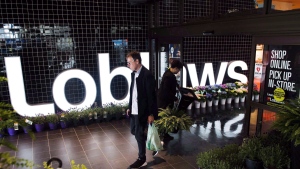Independent Stores and Grocery Alternatives Experience Sales Boost Amid Loblaw Boycott
The recent boycott of Loblaw Companies Ltd. has resulted in a surge of sales for independent stores and grocery alternatives. This comes after the retail giant faced backlash for ending its $2 per hour pay increase for frontline workers during the COVID-19 pandemic.
According to a survey conducted by the Canadian Federation of Independent Grocers (CFIG), independent stores across the country have seen an average increase of 10-15% in sales since the boycott began. This is a significant jump compared to the usual 2-3% growth rate for these stores.
CFIG President and CEO, Tom Barlow, attributes this boost in sales to consumers’ desire to support local businesses and their frustration with Loblaw’s decision to end the pay increase. He also notes that independent stores have been able to adapt quickly to the changing demands of the pandemic, such as offering online ordering and delivery services.
In addition to independent stores, grocery alternatives like farmers’ markets and community-supported agriculture (CSA) programs have also seen a rise in sales. Many consumers are turning to these options as a way to avoid shopping at large chain stores.
The boycott of Loblaw has also sparked conversations about the importance of supporting local businesses and the impact of corporate decisions on frontline workers. This has led to a growing movement to shop at independent stores and support the local economy.
However, Loblaw has defended its decision to end the pay increase, stating that it was always meant to be temporary and that they have implemented other measures to support their employees, such as bonuses and mental health resources.
Despite this, the boycott continues to gain momentum, with many consumers choosing to shop elsewhere. It remains to be seen how this will impact Loblaw’s sales in the long term.
In the meantime, independent stores and grocery alternatives are reaping the benefits of increased sales and support from their communities. This serves as a reminder of the importance of supporting local businesses and the power of consumer choices in shaping the retail landscape.



